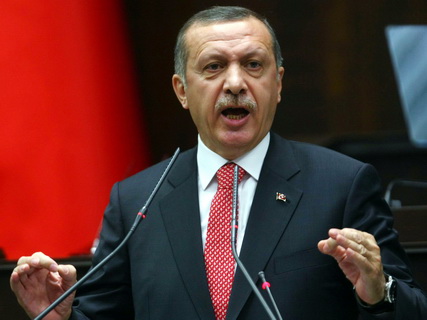SHARM EL-SHEIKH: Chinese Premier Wen Jiabao pledged to give African countries $10 billion in concessional loans and cancel their debts to increase China’s role in the continent.
At the third triennial Forum of Chinese-Africa Cooperation, held in Sharm El-Sheikh from Nov. 6-8, Wen said, We will help Africa build up its financing capabilities… we will provide $10 billion for Africa in concessional loans.
He also said China would set up environmental programs in the continent, including 100 clean energy projects.
The forum drew over 800 African and Chinese entrepreneurs, as well as numerous ministry officials, bank heads, and advisors.
As Chen Deming, China’s minister of commerce pointed out, the presence of Egyptian Trade Minister Rachid Mohamed Rachid, Prime Minister Ahmed Nazif and Chinese Premier Wen Jiabao testified to the priority given by both Africa and China to their relationship.
After a business matching session and addresses from several key entrepreneurs, Wan Jifei, chairman of the China Council for Promotion of International Trade (CCPIT) introduced the opening session of the conference, moderating statements by Rachid. Nazif, and Jiabao, as well as Mohamed El-Masry, president of the Union of African Chambers of Commerce, Industry, Agriculture and Professions (UACCIAP ).
Rachid’s statement that Africa is the second greatest global market for the construction industry demonstrates the rise in the number of African building projects despite the financial slowdown.
He emphasized that China’s relationship with Africa is not based solely on the extraction of raw resources; institutions such as the China-Africa Development Bank were established in order for African governments and companies to benefit from Chinese cash-flow.
Prime Minster Nazif welcomed his Chinese guests and re-emphasized the importance of Chinese-African cooperation. He stated that the $6 billion China invested in Africa in 2008 represent 10 percent of its total investments abroad, a figure that both sides expect to see increase.
Premier Wen Jiabao’s entrance and speech elicited high excitement from the Chinese audience members.
Jiabao focused on China’s commitment to developing Africa as a whole, citing Chinese projects in all 53 African nations. He spoke of the strong popular support in China for funding investments in Africa and of its relationship to Africa as a model for South-South development.
Although he did not specifically mention the subject of human rights, a criticism that western watchdog groups have leveled at China’s “respect for sovereignty attitude towards the sometimes corrupt or dictatorial regimes that receive Chinese funds, his attitude conveyed a note of challenge to those in the US and Europe who question China’s motives.
“Our past progress has shown that our tradition of friendship is unbreakable; based on equality and mutual benefit. We are good partners complimenting each other for win-win cooperation.
A laundry list of humanitarian investment projects, including 100 rural schools, 30 hospitals, and 30 anti-malaria centers, followed several “landmark projects that range from a glass factory in Ethiopia to a stadium in Angola, which Jiabao described as the “business cards for the Chinese engineering companies that completed them.
He also focused on human resources, calling them “more valuable than gold – the 15,000 Chinese professors currently working in Africa to share technical knowledge with African students, as well as an extensive program to bring African students to study technical skills in China.
Stressing the steady growth of Chinese investment in Africa – year-on-year growth of 75.5 percent in the first three quarters of 2009 – in spite of the financial slump, he seemed to imply a new direction for world trade, one that can afford to ignore the dictates of the US and Europe.
“Our combined population is equal to one third of the total human population. the fallout of the global financial crisis will not stay forever.
Although China has met many of its stated commitments to African development since the last FOCAC meeting three years ago, and Chinese development has left an unmistakable and growing mark upon African society, the attitude remains one of extraction, despite the oft-repeated catch phrases such as “win-win equation, “mutual benefit and “equal partnership.
The Premier stated several African commodities enjoyed by Chinese consumers that have little to do with developing Africa’s technical know-how:
“South Africa’s red wine, Uganda’s coffee, Tunisia’s olive oil, Ethiopia’s sesame and famous African ebony wood carvings are all well-known goods among Chinese consumers, Jiabao said, and then listed the six economic cooperation zones currently under development, two of which are in Egypt.
The renovation of a transcontinental railroad, first built by Portuguese colonizers, that stretches from Luanda, Angola on the Atlantic Ocean to Dar el Salaam, Tanzania on the Indian Ocean serves as a symbol that while Chinese involvement in Africa carries benefits and complications, China is ultimately interested in Africa for its natural resources, especially oil and iron ore.
El-Masry of the UACCIAP ended the session by stating, “Africa has suffered for the past two centuries form poverty. It is about time for African businessmen and women to head for development in order to achieve prosperity.
